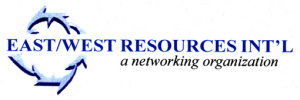
"Facilitating Strategic Partnerships"
East/West Resources International – the Story
In the fall of 1989 Gordon Wright and James Manchester of Jesus Inn Ministries made an exploratory trip into the Soviet Union. This was during the time of Glasnost Perestroika under the rule of Comrade Gorbachev and shortly before the fall of the Berlin Wall.
Their first contact was with Seppo Palonen, one of the local Youth With a Mission (YWAM) leaders in Helsinki, Finland, at the train station restaurant in Helsinki, to receive a briefing on the work of YWAM Finland into the Soviet Union as they had a long standing work in the area.
That morning, James and Gordon left by train, taking with them a large suitcase of Bibles and Christian literature. It was reputed that, with the new openness, transporting Christian literature was now allowed, but there had been varying reports of different reactions to such activity depending upon the specific political climate of the time. At the border, the normal immigration and customs check proceeded with random checking of luggage, but the literature passed unnoticed.
After getting settled at the Hotel Belgrade where they had made reservations, Gordon called their local contact. Before leaving Tulsa, Gordon had received, from a local ministry to the persecuted church, the names and telephone numbers of a number of Christian contacts in the cities that they were scheduled to visit.
Immediately upon hearing Gordon speaking English, he heard, minut! minut!” on the other end of the line and someone who spoke English was quickly found. After a few words of identification regarding the mission in Tulsa that had given them the telephone number, Gordon was asked for their location. Gordon told them “The Hotel Belgrade”. At this, Gordon and James were instructed to walk out the front door of the hotel in 15 minutes, turn right, walk down the street and continue walking until further contact was made.
This plan sounded like the plot from a “B” spy movie, but these people were totally serious. Gordon and James did as they were told and as they were walking, a little Russian car pulled up next to them and they were quickly ushered into it. They were then driven in circles around the city until the car finally came to an old Soviet concrete block apartment building, where they were escorted inside and into an upstairs apartment. After removing their shoes, they were led into the living room where the shades were quickly drawn and they found themselves in a house church meeting.
Word had spread that foreign guests had arrived and a meeting had been quickly called.
Gordon and James were greeted with much exuberance and love. They were then asked to share from the scriptures. Gordon shared a word of encouragement for 45 minutes, feeling, as he ended, that he had truly ministered the Word of the Lord. As he finished, the brother in charge asked him, “Is that all you have?” He answered, yes, that was what the Lord had given him. The brother then said, “We will have your brother speak and come back to you afterward.” They were truly a people hungry for God’s Word.
From Leningrad Gordon and James then took the train to Moscow. After checking into the hotel and having the usual security issues of the authorities taking consummate information and then confiscating their passports so they couldn’t go anywhere without it being known, they called their contact number in the city.
Once an English speaker got on the phone and the questions of how they got the telephone number was settled, Gordon and James were told that someone would meet them at Pushkin Square. Pushkin Square was easy to find, because it had a statue of the famous writer and poet Vladimir Pushkin seated in the middle of the park.
It also happened to be right across the street from the future location of the first McDonald’s Restaurant in Moscow. There was a big banner across the front of the building announcing its coming. Freedom was fastly approaching Russia as well as capitalism.
Gordon told their contact that they would be waiting near the statue, on a park bench and would have with them, a red backpack. As they waited, they noticed a number of young people in the park and James struck up a conversation with them. Most students in Russia study English, but have little chance to practice it on a foreign English speaker. James immediately used this as an opportunity to present to them the gospel.
Within a short period of time a fairly large crowd had gathered around listening, which attracted quite a bit of attention. Everyone was very interested and hungry for the good news of the gospel. It was right about then that the contact arrived with a couple of friends wondering what all the commotion was about.
Once he realized what was going on, he turned to the crowd and clearly presented the truth and challenge of the gospel in Russian. Once his presentation was complete and he was convinced that they understood, he turned and motioned to Gordon and James that they needed to leave quickly.
They traveled down some stairs and through a walking underpass to the other side of the street, quickly entered a Metro station, caught the Metro and were gone from the area in 5-10 minutes. This was still a time of concern regarding religious freedom and what they had done in the park was not necessarily a very wise action. Even so, their Russian contact merely smiled at them and was encouraged by their boldness.
Gordon and James were taken immediately to a house church meeting held in a Soviet block apartment similar to the one they had attended in Leningrad. Their contact turned out to be one of the leading brothers in the unregistered church in Russia and had spent 5 years in prison for his faith. In the ensuing years, he became a very good friend and was able to travel to the U.S. and minister in Gordon and James’ home church in Tulsa. They continue to fellowship and minister together with him some 20 years later.
From Moscow they took the night train to Minsk, Belarus where their contact was a Russian of Finnish descent. Minsk, the capital of Belarus was a Russian city totally destroyed by the Germans during Word War II. It had been rebuilt in the late 1940’s/early 1950’s as an industrial city devoid of historic buildings and monuments, a very bland post-modern architecture. Again, Gordon and James both ministered in a house church meeting and enjoyed the love and fellowship of their brothers and sisters in Christ.
From Minsk the two then traveled by train to Warsaw, Poland and were able to make contact with a Polish man, a brother in Christ. This brother in turn contacted the pastor of a village church in the eastern portion of Poland on the Russian border.
Gordon and James were then transported 2-3 hours by car through beautiful, lush forests to a classic Polish village out in the countryside. This was during the days of the “Solidarity” movement in Poland and tensions were still high in the country. During the time Brezhnev was president of Russia, it was outside of this very village, on the other side of the border, that tanks were gathering to make a rush into Poland to crush the rebellion.
Gordon and James had a tremendous meeting in this village church with the power of the Holy Spirit evident both in the ministry of the Word and in prayer, as they prayed for people with various needs. Returning to Warsaw, they also ministered in one of the city churches. The time in Poland was a time of great freedom and anointing both in word and Spirit. There was a noticeable difference in the spiritual atmosphere between Poland and the rest of the Soviet Union. The country as a whole was truly starting to move out of the Soviet orbit.
As Gordon and James returned to the U.S., a vision was being birthed. Out of this exploratory trip and two specific trips after that, in the spring and fall of 1990, came the vision of East/West Resources International. It was birthed out of a desire to help develop strategic partnerships for ministry with the believers in the former Soviet Union.
The Vision
East/West Resources International is now almost 20 years old and has developed and grown into a vibrant mission with a seven point vision:
1. Sister Church Project (SCP)
Linking American churches with churches in the former Soviet Union (CIS) for material and spiritual support
2. Bible Institute of Ukraine (BIU)
Intensive, one week leadership training sessions held three times a year.
3. Teaching English as Second Language (TESL)
Teaching English, utilizing Biblical materials for the purpose of evangelism and training of Christian translators for the church.
4. Literature Distribution
Bibles, New Testaments, Sunday School materials, Christian growth material, evangelistic tracts and leadership resource material; concordances, Bible commentaries, Bible dictionaries, etc.
5. Medicine
Medicine (both prescription and across the counter) both for church members, distributed by leadership and for local hospitals including antibiotics, cold medicine, aspirin, advil, vitamins, etc.
6. Ministry Teams
Coordinate, short term ministry teams; evangelistic and teaching.
7. Vegetable Seed
For individual gardens of church members and larger church farms.

